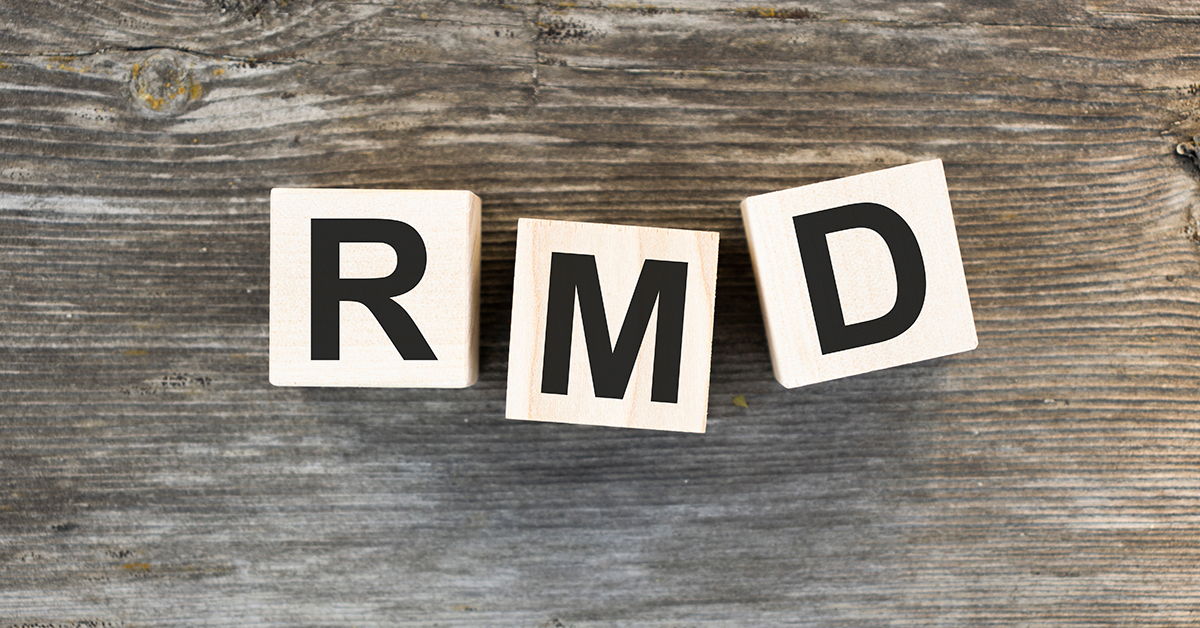This week we continue with the topic of RMDs as we cover the distribution rules associated with inherited IRAs. Last week we discussed RMDs as they pertain to personal retirement plans and IRAs, but what happens if you inherit one of these accounts? Just as with personal retirement accounts, the government still wants to collect their tax money, which is why they have RMD rules for inherited accounts as well.
The rules surrounding inherited retirement accounts have grown more complex since the SECURE Act passed in December 2019. We will be covering the updated rules per the SECURE Act, but you can find all of the previous RMD rules for inherited accounts here. These are going to pertain to anyone who inherited an account from a decedent who passed away prior to January 1, 2020.
The following are going to be the distribution rules for any one who inherited an account from someone who passed away on or after January 1, 2020. It’s important to note what your relationship was to the decedent as the rules are different based on your relation. Per the SECURE Act, the following are going to be considered “eligible” designated beneficiaries:
- Surviving spouses
- Minor children of the deceased
- Disabled individuals
- Chronically ill individuals
- Individuals not more than 10 years younger than the deceased (a sibling)
Here are the different distribution options based on your relationship to the decedent:
“Disclaim” the inherited IRA
This option is available to everyone.
By disclaiming and not accepting the inheritance, you allow the assets to pass to an alternate beneficiary named by the original account holder. In doing this, you can potentially pass these assets on to someone in a lower tax bracket.
Lump-sum distribution
This option is available to everyone.
A lump-sum distribution allows you to take out all of the assets from the account while still avoiding the normal 10% penalty assuming you’re under 59.5 years old. This may not be the best option if you are in a higher tax bracket as the entire distribution will be taxed at your marginal tax rate.
Transfer funds into your IRA
This option is only available to spouses.
Transfering funds allows a spouse to place the funds into their own IRA and treat the account as if it was theirs the entire time.
Take distributions over your lifetime
This option is only available to those “eligible” designated beneficiaries.
It’s important to consult with a financial professional when choosing this option as there is a 50% penalty on any undistributed amounts.
If the original account holder was over the RMD age at the date of death, you must begin taking distributions no later than December 31 of the year following the original account holder’s death.
If the original account holder was under the RMD age at the date of death, you must also begin taking distributions no later than December 31 of the year following the original account holder’s death. However, if you’re the spouse of the deceased, you’ll be able to wait to take RMDs until December 31 of the year in which the decedent would have had to take those RMDs.
Minors of the deceased are allowed to stretch out the distributions over their life expectancy – but only until they reach the age of majority, which is determined by their state of residency. Once they reach the age of majority, they switch to the new 10-year distribution rule (discussed below).
Distribute assets within 10 years
This option is available to all beneficiaries who are NOT “eligible” beneficiaries
With this option there are no scheduled RMDs. The only caveat is that all of the assets must be taken out within 10 years.
As you can understand, inherited IRA rules can become complicated depending on your unique situation. That’s why we suggest you work with a financial professional through this process to ensure no details are overlooked.
This blog will be our last for the remainder of the year. We are looking forward to providing fresh, new content starting again in 2021. With that being said, we want to wish you and your families a very happy holiday season!
Ben Webster, CFP® and Derek Prusa, CFA, CFP®
Co-Founders and Owners of Aspire Wealth


